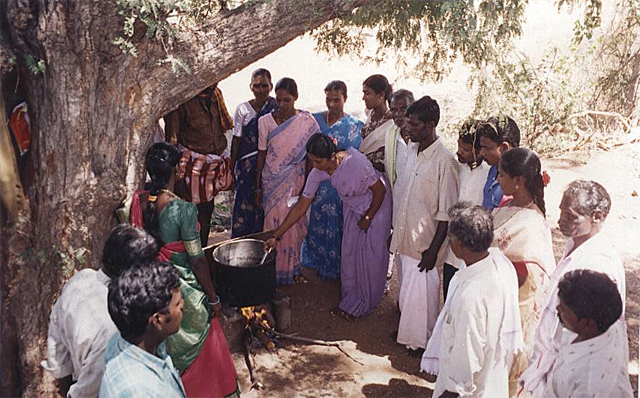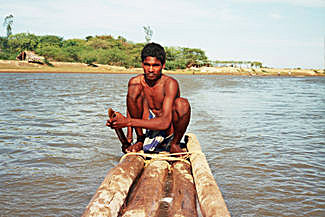Raghaviah, in his book The Yanadis (1962), indicated that the relationships between Yanadi men and women are characterized by tenderness, responsiveness, and mildness. But the relationships only last as long as both partners are committed to them. When a young woman, whom the author described as “slim, charming, fragile Chenchi” (p.176), decided one day to abandon her marriage to Subbaramudu and move in with another man, he accepted the new reality and formed his own new attachment to another woman. Raghaviah went into some detail about the casual male/female relationships among the people.

On September 28, The Hindu published a news report about the marriage customs of the Yanadi that adds to the ethnographic accounts of Raghaviah and the other scholars who have studied the peaceful tribe of Andhra Pradesh. The point of the news story is that among the Yanadi living in the town of Pedana, in the Krishna District of the state, a man will pay a “reverse dowry” to the woman he hopes to marry. They refer to the custom as “Gamaalam.”
Mr. Marri Nageswara Rao, the father of the groom, Marri Srinivas, gave the gamaalam payment to the parents of the bride, Durga, as soon as the two sets of parents had agreed on the proposed marriage. Ms. Durga told the reporter, “My parents had accepted the reverse dowry, agreeing for the alliance. [A] wedding in our tribe is a consensus between two families rather than a community’s affair.”

The Hindu quoted the amounts of the reverse dowry paid by Mr. Nageswara Rao and his wife Janikamma. They had paid 1,000 Indian rupees (US$14) for the marriage of their first son a couple years ago and 3,000 rupees ($42) for their younger son last month. According to other elders in the community, their customs prevent families from paying any more than 3,000 to 4,000 rupees for any reverse dowry. Since the families derive their livelihoods from daily wages, catching rats, farming, and hunting for crabs, they rely on their mutual honesty to keep their reverse dowry payments within the bounds of the community’s standards.
Before agreeing to the marriage, the family of the prospective groom makes certain that he will be able to properly care for his bride. He must have erected a house and be ready to provide support for his new wife and family without help from his family of birth. The young Mr. Srinivas told The Hindu, “I have fulfilled my immediate responsibility of building a new house for my wife. We have shifted to the new thatched house near a farm field in Pedana town and are leading our life together attending farm works,” he said.
Raghaviah offers the additional information that Yanadis are normally quite happy in their marriages as long as they last, and they are only occasionally marred by bickering. Furthermore, Yanadis do not act violently, no matter what the provocation. When deserted by his spouse, a Yanadi man may weep and appeal to his wife but he will not think of striking the man who has seduced her.